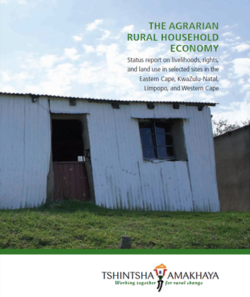
The Climate Land and Agrofood Systems (CLAS) team in EEE has been appointed to conduct the 2023 Agrarian Rural Household Economy (ARHE) study. Tshintsha Amakhaya (TA), an activist collective that advocates for people’s rights to land and agrarian livelihoods, commissioned this study as a follow-up to their 2011 research. The appointment of HSRC to undertake this study flows from our recognised expertise in this field and our ability to carry out large-scale research with pro-poor outcomes.
The main aim of the 2023 study is to document the working and living conditions among small farming households and farmworkers in South Africa. Standout markers of the makeup of these agrarian households will be explored in addition to livelihood catalysts. Women, for example, form a substantial majority of the agrarian labour force. However, gender equity policies often coexist with deep-rooted barriers that block women’s control over and access to land, agricultural inputs and crop and livestock outputs. Gender inequalities in agrarian activities also show up in climate dynamics and the effects of the Covid-19 pandemic in these settings.
The main aim of the 2023 study is to document the working and living conditions among small farming households and farmworkers in South Africa. Standout markers of the makeup of these agrarian households will be explored in addition to livelihood catalysts. Women, for example, form a substantial majority of the agrarian labour force. However, gender equity policies often coexist with deep-rooted barriers that block women’s control over and access to land, agricultural inputs and crop and livestock outputs. Gender inequalities in agrarian activities also show up in climate dynamics and the effects of the Covid-19 pandemic in these settings.
To inform the activism and advocacy of Tshintsa Amakhaya affiliates, the 2023 study will combine insights from key informant interviews and a survey of agrarian households across 12 districts. Where feasible, the results of the 2023 study will also be compared with the 2011 findings to help map the nature and direction of any changes that may have occurred over slightly more than a decade. How the experiences of agrarian households in South Africa compare with what is happening elsewhere in the global south will be done through a purposeful review of country cases. Tshintsa Amakhaya formed a research reference group to oversee project implementation, offer feedback on substantive resource outputs, facilitate access to research sites and promote the outcomes of this research through their networks.


